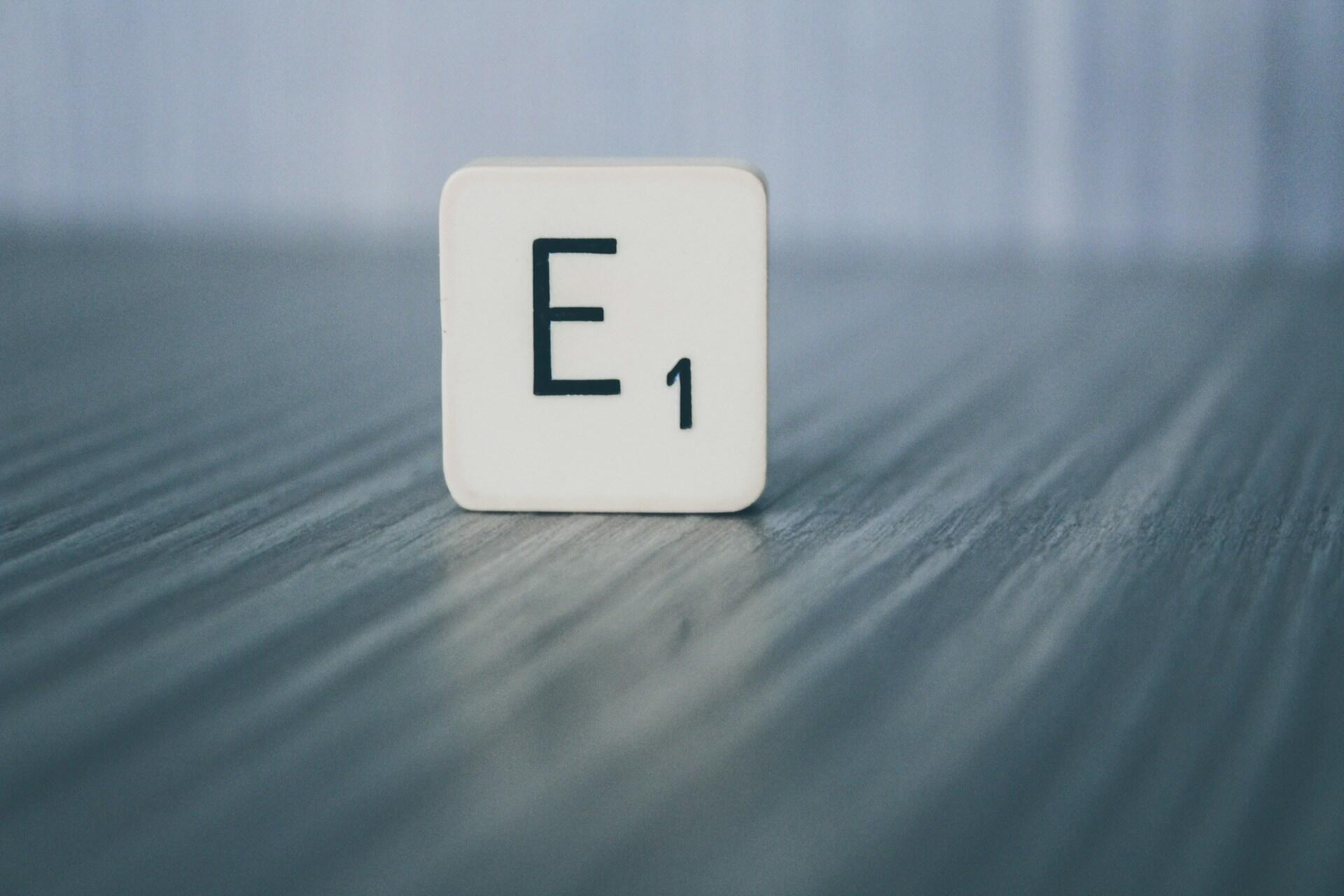Like most languages, English has rules that influence how words sound. The trouble is, those rules don't apply to every word! This article is all about English pronunciation: its rules and exceptions, why same-sounding words mean different things, and why this is such a strange language. Before we start, do you know these English pronunciation rules?
Five Basic English Pronunciation Rules
- Vowel pairs ('ai', 'ea', 'oa') usually make a short vowel sound.
- Short words almost always have short vowel sounds.
- Double consonants usually make a single sound.
- The vowel before a double consonant typically has a short sound.
- Words with a final E: the E is generally silent.

Why English Pronunciation Seems so Strange
The English language is full of weird words that look nothing like the way they sound.

Consider this sentence: "I would speak better English if English pronunciation rules were easy to follow!" Why is 'would' spelt that way when it sounds like 'wood'? The modal verb 'would' comes from the Old English verb 'wolde', which was the past tense of 'will'.
The English language kept its ancient words, and has borrowed words from many other languages.
Around 29% of everyday English words come from French; that's one reason why the spelling can be so strange. English speakers mostly just changed those words' pronunciation to suit their way of speaking. Among such words, we count:
- comfortable (kʌmftəbəl)
- mascara (mæskɑːrə)
- beef (biːf)
- government (gʌvəʳnmənt)
- army (ɑːʳmi)
- passport (pɑːspɔːʳt)
- sovereignty (sɒvrɪnti)
- hotel (hoʊtel)
- modern (mɒdəʳn)
- advice (ædvaɪs)
- garage (gærɑːʒ)
- arrest (ərest)
- carpenter (kɑːʳpɪntəʳ)
- money (mʌni)
- colonel (kɜːʳnəl)
English is considered a Germanic language, meaning it shares words with other German-based tongues. Again, the pronunciation (and, sometimes, the spelling) was changed to suit English speakers.
- kindergarten (kɪndəʳgɑːʳtən)
- pretzel (pretsəl)
- bagel (beɪgəl)
- diesel (diːzəl)
- hamburger (hæmbɜːʳgəʳ)
- kitchen (kɪtʃɪn)
- hamster (hæmstəʳ)
- cobalt (koʊbɔːlt)
- knuckle (nʌkəl)
- waltz (wɔːlts)
- poltergeist (pɒltəʳgaɪst)
- ghost (goʊst)
- Fahrenheit (færənhaɪt)
- ampere (æmpeəʳ)
- hound (haʊnd)
Besides French and German, English has adopted words from around the world. In fact, the British Council has advanced the idea that more than 80% of English words come from different languages. From that, English speakers have tried to make pronunciation rules that cover as many words as possible.
Why English Pronunciation Is So Weird
English Pronunciation Rules for Silent Letters in Everyday Words
The English language is full of silent letters. For instance, as noted above, the 'e' at the end of words is usually silent.
This silent 'e' serves a purpose, though. It signals that the vowel in the syllable before the end syllable must have a 'long' pronunciation: 'bite' (baɪt) versus 'bit' (bɪt), for example. Remembering the silent 'E's function will help you improve your English pronunciation.

Another easy rule to follow: 'kn' or 'gn' at the beginning of a word - the first letter is always silent. You don't hear the 'k' in 'knife' or 'knee', nor do you hear the 'g' in 'gnat' and 'gnarly'.
In fact, the letter 'g' stands out in the English language for these two reasons.
It's silent in 'gm' and 'gn' combinations
- champagne (ʃæmpeɪn)
- sign (saɪn)
- gnaw (nɔː)
- phlegm (flem)
- foreign (fɒrɪn)
- assign (əsaɪn)
- design (dɪzaɪn)
- resign (rɪzaɪn)
- malign (məlaɪn)
It changes its sound
- hard 'g' when followed by 'a', 'o', 'u'
- guess (ges)
- gate (geɪt)
- go (goʊ)
- soft 'g' when followed by 'e', 'i', and 'y'
- genes (dʒiːn)
- giraffe (dʒɪrɑːf)
- gyroscope (dʒaɪrəskoʊp)
- This rule has many exceptions!
The '-mb' Combination
This seems like an impossible letter combination to pronounce; it's equally impossible to explain. All the words with this ending come from different languages and/or were parts of longer words. Such words include:
comb (koʊm)
dumb (dʌm)
jamb (dʒæm)
thumb (θʌm)
dumb (dʌm)
limb (lɪm )
crumb (krʌm)
bomb (bɒm)
lamb (læm)
The important thing to remember when pronouncing these words is that the 'b' is always silent.
The Silent W
English speakers don't pronounce the 'w' in words like 'wrong', 'answer' and 'write'. But, at least we can explain why they're spelt that way. They all come from Old English, a language that had distinct pronunciation rules. We don't know if (or how) they pronounced those words but, today, English speakers don't pronounce the 'w' at all.
These words also come from Old and Middle English, and the 'h' was - and still is pronounced.
See: when (hwen), where (hweəʳ), why (hwaɪ), what (hwɒt), wharf (hwɔːʳf), and whey (hweɪ).
Pronunciation Rules in a Nutshell
However, it's pronounced in 'wh' words.
Silent letters make English words tricky to pronounce. British English pronunciation, Australian English and even American English pronunciation are made more challenging because those rules sometimes have exceptions.

The Biggest English Pronunciation Rules That Don't Always Apply
As the saying goes, rules are made to be broken. Still, these rule breakers make learning English very hard!
I before E except after C
Words like 'receive' and 'ceiling' (versus 'believe' and 'grieve') appear to prove this rule. But you've seen the word 'weird' throughout this article, a clear break from the 'I before E' rule. This list of rule-breaking common English words is rather short, so you might try memorising them.
| 📖IE after C | 🔊Pronunciation | 📖EI after other letters | 🔊Pronunciation |
|---|---|---|---|
| science saɪəns | neighbour neɪbəʳ | ||
| ancient eɪnʃənt | weight weɪt | ||
| conscience kɒnʃəns | height haɪt | ||
| species spiːʃiz | protein proʊtiːn | ||
| sufficient səfɪʃənt | heir eəʳ | ||
| democracies dɪˈmɒkrəsɪz | weird wɪəʳd | ||
| society səsaɪɪti | foreign fɒrɪn | ||
| bouncier ˈbaʊnsɪə | vein veɪn | ||
| efficient ɪfɪʃənt | seize siːz |
Hard G and Hard C
The rule: before 'a', 'o', and 'u', G and C are hard. C and G are soft before 'e', 'i', or 'y'. The letter G has the most exceptions to this rule, but C has a couple of misbehaving words, too.
- Exceptions for G: girl, gear, geese, gills, gift, begin,
- Exceptions for C: soccer, success,
Double Vowels: Say the First Vowel's Name
The catchy song in that video says whenever you have vowel pairs like in 'boat', 'meat', and 'hair', you say the first vowel's name and ignore the second vowel. In other words, the vowels don't combine to make a distinct sound.
However, that rule does not apply to 'oo' and 'ou' pairs. Try it for yourself with these words:
- boot (buːt)
- moose (muːs)
- zoom (zuːm)
- loop (luːp)
- loose (luːs)
- mouse (maʊs)
- rout (raʊt)
- mouth (maʊθ)
- house (haʊs)
- round (raʊnd)
It doesn't apply to dead (ded), head (hed), or the past tense of 'read' (rɛd), either.
Double Consonants as a Single Sound
This rule applies to words like 'gazelle', 'arrest', 'assess' and 'apply'. It does not apply to words like 'success' and 'access'.
Some double C words follow this rule: accommodate, acclimate, accord, accept and others.
Homonyms: Different Spelling, Same Sounds - and the Reverse
The Chinese language has more than 5 000 characters to describe everything people want to say. Furthermore, speakers have around 400 sounds and use five tones (4 tones plus '0-tone') to give their words meaning.

By contrast, the English language is limited to 26 letters. These letters combine in various ways to make all the sounds English speakers communicate with.
This explanation helps us understand why the English language 'recycles' its words and sounds.
For instance, the word 'bear' has two meanings: a large animal and the verb 'to carry or withstand'. The word 'bare' sounds exactly the same, but means 'without covering'.
'Bear-bare' is a homonym.
Homonyms are a category of words that includes homophones and homographs.
Homophones sound alike but are spelt differently.
Homographs are spelt the same but have different meanings and, sometimes, different sounds.
It's impossible for you to use the wrong homophone when you're speaking because the words sound the same. However, when you're writing, using the wrong homophone matters. On the other hand, using the wrong homograph when speaking could be a mistake. To demonstrate, we'll use the 'read - read' homograph.
I read that book years ago.
Your teacher will likely count that mistake as using the wrong verb tense because the context suggests you should have used the past tense pronunciation. It's spelt exactly the same way, but sounds like 'red'.
Unfortunately, there's no way to avoid these types of mistakes.
But take heart! Even native speakers have trouble with homonyms!
Some homophone mistakes are hilarious! Not that we're laughing at people who make honest mistakes, of course. But it's perfectly acceptable to laugh at the mistakes.
Tips to Master English Pronunciation
English learners are at a disadvantage because, as this article reveals, words don't always follow pronunciation rules. Letters don't always sound the same, and words change their meaning depending on context.
But these aren't aspects of the English language to focus on; they are more like guideposts. As the video says, you can master tricky English pronunciation by following this advice.
Final bit of advice: don't let any mispronounced words you might say make you frustrated. Even native English speakers make pronunciation mistakes!
Summarise with AI:
























